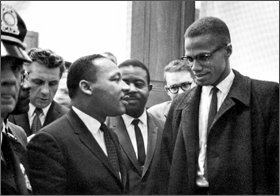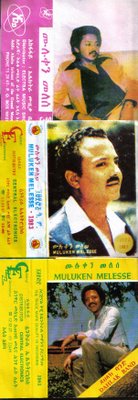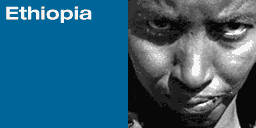
I stood under the old pine trees and stared at the kill-zone through the green bars of the school’s fence. It was lunchtime and the high green-coated fence provided an artificial enclosure from the killing fields Addis Ababa had become. To those looking into the school, they saw a nappy dark-skinned kid with a thousand-mile stare. I was just a keremt away from turning ten, lived for football, kung-fu flicks, marbles, and dreaming about Tigist, the thumb-sucking little teacher’s pet that sat in the front of the class and who occasionally stole glances at me through her long, curly-eyelashes. But on that day, I needed to ponder my father's comments from the night before.
CRIMSON
The young man had a huge afro which bounced with every step he made in his pointed high-heeled shoes that barely peaked through his bellbottoms. He looked incredibly cool. I made a point to ask my parents to buy me the same studded jean jacket he wore. Uncontrollable anger swelled in me at Emaye who had cut my own six-month-old mighty mane barely a week ago. “Afros are passé” she had declared as she snipped away. I sat through the ordeal with the fattest of lips in Arada.
Traumatic images come in tiny morsels, usually in unclear order and sequence. Events that take a few seconds play out in slow motion. The human brain is a time-freezer; it disentangles grainy kaleidoscopic streams into distinct and separate moments that can be paused, panned, rewound, and played in slow-motion.
I witnessed it from the passenger seat of my father’s rusted Bolsbagen as we sat at a traffic light not far from my school. The young man must have known death was upon him. His terrified eyes barely turned around toward the flash and the bang. Or the bang and the flash. Then a handgun—I think, a revolver type, was pointed down at the afro lying lifeless on the ground and producing a halo of bright red blood. Another flash/bang and the man with the black leather jacket fired another round at the afro now turning a brackish crimson. And just like that, the strutting young man was axed down right before my eyes.
ORANGE
At sunrise, Qwami-teTeri pick-up trucks with their mounted high-caliber machine guns roamed Addis Ababa’s thoroughfares and back roads to collect the slain from the streets. With the dawn came the merdo, and with it, the sharp wails of mothers screaming in agony. Their wails rose higher than the beautiful bright orange Addis Ababa sunrise and the celestial Qidase of the morning Kahenat. Oh yes, the setting Ethiopian sun killed the youth; the dawn brought hell at our mothers’ doorsteps.

My father and I knelt for my bedtime prayer. He delivered Abatachin Hoy slowly that night, sighing deeply at every canto, beseeching the Lord and Mariam for mercy. Over dinner, my parents had speculated who the killer might have been--for the first time, I heard all sorts of acronyms of political parties, no longer associated with the ideals they held, but with killing—either as victims, or agents of it. Before he tucked me in, I asked, “Ababiye, it was the Derg that did it, right?” I searched his eyes to find meaning to the cryptic discussion over dinner but the man with the answer to all things mysterious never looked this lost. He finally answered, but it would take me years to understand what he said to me that night: “We just don’t like each other very much.”
My parents' generation lived through one of the worst periods in Ethiopia's history. The Derg was unrivaled in its ability to exterminate: in 1977, "[o]ver 10,000 political assassinations [were] estimated to have taken place in the capital alone;" and in 1978, a "third wave of killing . . . was aimed at high school students, 5000 of whom were killed in a single week." Patrick Devenny, Frontpagemag.com (Nov. 28, 2005). Devenny describes the Derg's grizzly modus operandi:
Witnesses spoke of unimaginable scenes of horror. A Swedish observer reported witnessing hundreds of dead children--killed by Mengistu's secret police--dumped alongside the roads of the capital of Addis Ababa. Their bodies soon attracted packs of ravenous hyenas. Decapitated heads were swept into gutters. In the countryside, mass graves were being filled with the bodies of thousands of supposed "counter-revolutionaries," while hundreds of similarly accused individuals were imprisoned in dungeons or outdoor concentration camps.
In addition to the firing squads, security forces used other, more gruesome tactics to suppress opposition. One tool was a nylon rope, or "Mengistu necktie," used to slowly strangle prisoners or torture them into revealing acquaintances or plots. Other officers were fond of using the bastinado, which was used to brace the feet before smashing them into stumps. Tens of thousands of Ethiopians were permanently crippled in this manner.
ORANGE RELOADED
Pop’s comment continues to haunt me. It is foolish to believe Mengistu did it alone: we virtually slaughtered each other--lists were drafted, names forwarded, even by family members who identified the "adhari" in their family. But here we are again, dealing with a government that kills children in broad daylight, allowing, once again, the screams of wailing mothers to rise with the morning sun.  The irony is not lost on anyone when the same government that wants Ethiopians to be thankful to it for overthrowing the Derg shoots its own citizens in the forehead for merely throwing rocks. Regardless of the results of the investigations of the June and November 2005 killings, the EPRDF will forever be associated with the grizzly images of the dead, maimed, and wailing. And these are only images that have been caught on camera--God only knows what happens in the countryside and in the detention centers. Meles Zenawi's interview with Inigo Gilmore of Channel4 News was frightening at best: when asked if allegations of vile human rights abuses and death in detention centers was true, the prime minster's response should have been something like "if those rumors are substantiated, I will personally and immediately see to it that those who are committing those violations will be punished," and not, "I will not take [the allegations] at face value until they are investigated." The reporter did not accuse him of anything--he just asked him about the fate of poor Ethiopian kids. Can't he even pretend to care?
The irony is not lost on anyone when the same government that wants Ethiopians to be thankful to it for overthrowing the Derg shoots its own citizens in the forehead for merely throwing rocks. Regardless of the results of the investigations of the June and November 2005 killings, the EPRDF will forever be associated with the grizzly images of the dead, maimed, and wailing. And these are only images that have been caught on camera--God only knows what happens in the countryside and in the detention centers. Meles Zenawi's interview with Inigo Gilmore of Channel4 News was frightening at best: when asked if allegations of vile human rights abuses and death in detention centers was true, the prime minster's response should have been something like "if those rumors are substantiated, I will personally and immediately see to it that those who are committing those violations will be punished," and not, "I will not take [the allegations] at face value until they are investigated." The reporter did not accuse him of anything--he just asked him about the fate of poor Ethiopian kids. Can't he even pretend to care?
It is too easy to blame Ethiopia's leaders for the country's ills. Indeed, Ethiopian empires and governments have risen and fallen, constitutions drafted and redrafted, and political parties formed, dissolved, or eradicated. However, what has remained constant throughout the centuries is our inability to peacefully resolve our political differences. One would think 3,000 years of civilization would provide Ethiopians sufficient training in that area.
Ethiopians have become deeply divided along every line imaginable and the Diaspora is no exception. At the dawn of the Ethiopian millenium, in some U.S. cities, we have even stopped worshipping together our ancient monotheistic Coptic God. One married couple I know who find themselves at opposite ends of the political spectrum no longer attend family functions together.
Both sides are drafting lists of names of individuals--the government's and its cadres' far more sinister and lethal, given their ability to incarcerate, repress, and pass judicial and extra-judicial death sentences. The actions by radical followers of the opposition is also disturbing: they engage in slander, defamation, and publicly accuse private citizens of treachery for ridiculous things such as traveling to Ethiopia to visit friends and family. I have heard people are entering Ethiopian Airlines flights in Washington decked out in baseball hats, scarves, and shades for fear of being recognized by someone who knows a rabid radical. One must wonder what these radicals would do if they were the ones in power.
Rabid partisans from both sides have framed the political discourse and as a consequence, we live in a time when intellectual independence will guarantee an Ethiopian the enmity of most social, and even, religious organizations. Reason, once again, has been suspended in this tradition we consider the paragon of all traditions.
Speaking of families, with a few exceptions, most Ethiopian families I know have deep feuds that have kept aunts, uncles, and siblings from speaking to each other for years. Most often than not, the source of these feuds is pride, arrogance, and inability to accept our mistakes. If our families cannot get along, how can we, as a people? We speak of democracy yet the notion of agreeing to disagree and being able to peacefully coexist while holding diametrically opposing political views is as alien to us as love is to a hyena.

For Uncle SHA. Thanks for the late-night talks, bottomless parables and Yeunglings, and LIFE LESSON 495. Thanks for always being there.

 study in colleges of our choosing, compete for decent jobs, fight housing and workplace discrimination, vote in elections, and yes, benefit from Affirmative Action, was made possible by the blood sacrifice paid by the likes of Dr. Martin Luther King, Emmett Till, Medgar Evers, Malcolm X, and thousands of nameless African-Americans who have died to make their society equal since the first slave ships arrived in America. Freedom was never given to our black brothers and sisters: they wrangled it from the deathly grips of America’s three braches of government.
study in colleges of our choosing, compete for decent jobs, fight housing and workplace discrimination, vote in elections, and yes, benefit from Affirmative Action, was made possible by the blood sacrifice paid by the likes of Dr. Martin Luther King, Emmett Till, Medgar Evers, Malcolm X, and thousands of nameless African-Americans who have died to make their society equal since the first slave ships arrived in America. Freedom was never given to our black brothers and sisters: they wrangled it from the deathly grips of America’s three braches of government.









